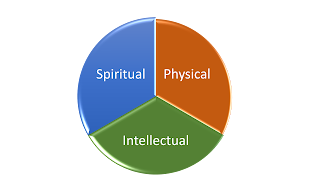Usually, when one does not like a book, one keeps quiet. If very angry with the book for wasting time on it, one tends to give it a low rating on Amazon and maybe write a short negative review.
But this book was bought from a curated book store and then read with dedication.
Its a 3 hour read at a pithy 234 pages.
The book has 4 sub plots - the terrorism in Punjab, The status of Dalits in Punjab, the business of Deras in Punjab, and clinical depression in medical professionals (the narrator). No wait, there is also that subplot about Shiv Sena and Maharasthra, the missionary activity in Punjab, and so on..
Perhaps the author thought that it would be very interesting to present the narrative through the eyes of the clinically depressed doctor who lives in the wilderness, while also subtly covering the doctor's own struggle with depression and while we are at it, lets also cover covert conversion by missionaries in the name of education, and lets throw in a little tirade on the tough life of the shrink during violent times.
As a reader, I simply don't have the kind of range that the author brings to the table. I like stories with focused characters, exploring those characters as fully as possible, especially if it is going to be a story about historically significant events and if those historically significant events are going to be interpreted, not merely referenced and documented.
I could probably have lived with 2 parallel plots - the story of the 2 Dalit kids who have grown up together and what they have had to go through, and the story of how terrorism affected them. But the novel narrates terrorism through the eyes of the doctor, indicating only some key actions that are taken by Bheem and Shamsie because the political climate.
What emerges for the reader is a mixed veg sabzi in which half boiled potatoes are thrown with overcooked mushrooms, barely cooked carrots, hastily mashed tomatoes, in a thick gravy of undercooked onions.
And therefore, you are left with that feeling of not being able to immerse in anything completely. We cannot even fully understand Shamsie and Bheem - both intelligent and complex characters, because they do these guest appearences across chapters. Why?
Why is Sidhu's character not explored more - he fits so well into the story and deserves to get more print space. There are so many unanswered questions about him - Jassi and Bheem can't be the only good singers in Punjab - why did he tag along with just these 2? What kind of band survives without a lead singer? Esp in the Punjab of the 1980s, where a singer and a comedian were core to the performance industry? How did he manage to subdue his love for Jassi?
Just as you start to get into the world of Shamsee and Bheem, along comes doctor sahib with his depression and the weird things that are happening around him - the dead bodies floating on the river, the kidnapping by both sides, and so on. And as you are trying to understand this barely believable character, Poof! Like a magician, Enter Dr. Mustafa and his story.
Oh wait, we also have to talk about dera owners and partition violence and regimentation at the dera.. why leave anything out?
But perhaps the most irritating feature of the book is its series of competely one sided inferences about what was going on in Punjab, or the hardly fictionalised academic sounding but basically one sided view of the terror issue in Punjab.
The final violence in the book is both unnecessary and repugnant. It contributes nothing to the climax of the plot, and is perhaps the most irrelevant, useless climax events I have ever read in a book.
This book should have gone into the furnace of a sharp editor and been reworked a fair bit before being released.
Perhaps the author targeted breadth, perhaps the author wanted to share a one sided view of history, in which it is mentioned that 8000 men will not return home because of police brutality, but does not mention the number of people who lost their young boys, earning men, and livelihoods to the Boys, as he calls them. None of those approaches worked for me, as a reader.
He tries to bring out the negatives in the work of the Boys, but through the soft padding of anecdotes, unlike the hard numbers that he uses to showcase the police side. He also completely forgets to mention the sleepless nights that police personnel had to spend in this business of vigils and verifications. Unexpected deaths were all over. Policemen, too, left home after waving Bye to their school going children, and never came back again.
I would give this book a miss, and a wide berth. A book that evidently is a fruit of labour, but kind of lacks both taste and flavour.


